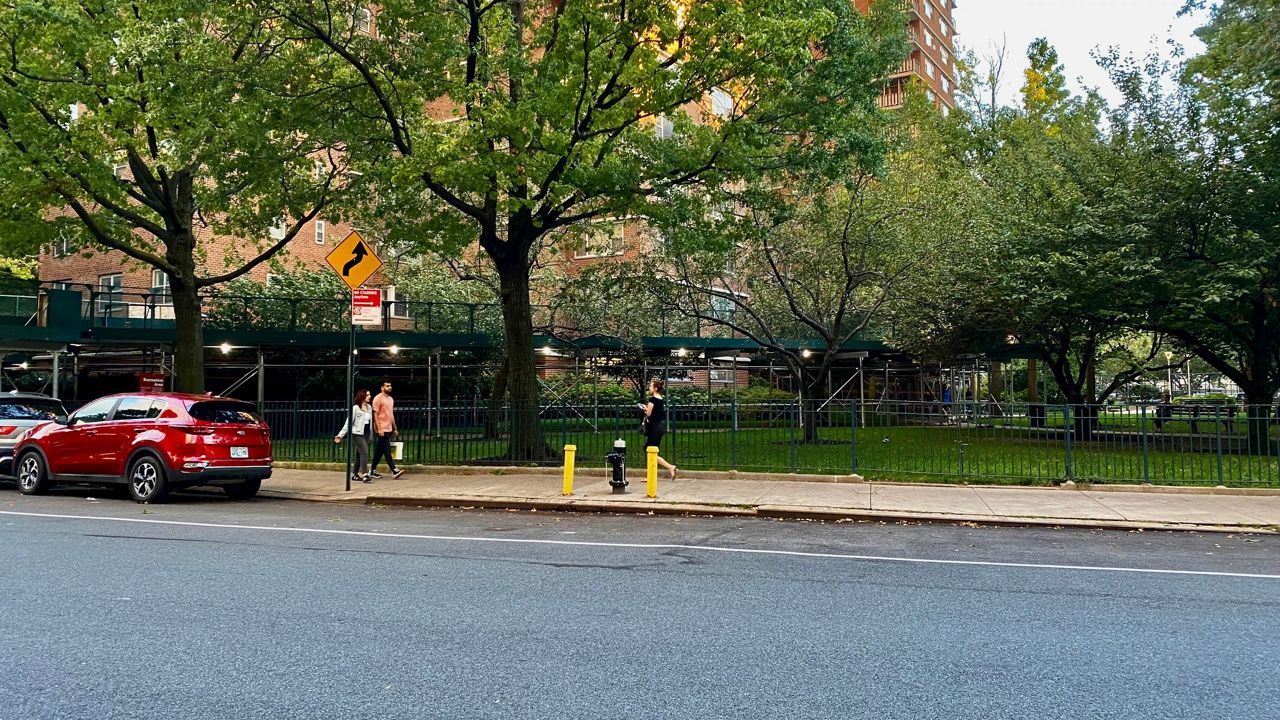Community members in Chelsea voiced their opposition this week to the MTA’s plan to build an underground substation to improve power along the 8th Avenue A/C/E subway lines.
The electrical power substation takes AC power from Con Edison and converts it into voltage that can be handled by the transit system, MTA officials said.
The construction is expected to cost $80 million.
The proposed site on West 28th Street between 8th and 9th avenues falls in between Penn South, a residential co-op.
At a Community Board 4 transportation committee hearing Wednesday, residents and elected officials raised their concerns with the project, including the proximity to a residential community where many older people live.
“I find it hard to believe that the middle of a residential complex is good on any level for a substation,” said state Sen. Brad Hoylman, who represents the neighborhood of the proposed substation.
Concerns over disruptions caused by construction including noise levels, air quality, roadway impacts on traffic, and the increase of rats were raised by community members at the hearing on Wednesday.
“There's a lot of people in wheelchairs and a lot of kids, too,” Michael Bournas-Ney, a Penn South resident, said. ”It's a real community — it's not, like, a regular bunch of buildings. It's a genuine community.”
Construction is expected to last 39 months with 24 of those months taking place at street level, MTA officials said.
The purpose of the substation is to increase the reliability and number of trains along the A/C/E subway lines.
People also expressed concern with potential long-term health impacts of the substation once it’s in service, including electromagnetic frequency, radiation levels and the threat of fires or explosions at the site.
MTA officials said an environmental assessment deemed the project to be safe and found no direct health risk.
Opponents to the plan also pointed out its proximity to several social services in the area that they fear will be disrupted during construction, including the AIDS Healthcare Foundation, United Cerebral Palsy residents and the Church of the Holy Apostle, which serves thousands of people through its soup kitchen.
“The whole block is going to vibrate and shake so we're worried that people won't be able to withstand and stay out there for long periods of time — that they'll be dispersed,” Ambur Nicosia, Penn South Board president.
The West 28th Street site was originally proposed in 2018, but was met with resistance by the community, the Penn South Board, as well as elected officials, including then-City Council Speaker Corey Johnson.
The MTA then considered 30 alternative locations, but returned to West 28th Street as the ideal site in 2021, according to Luke DePalma, senior director of Government and Community Relations for New York City Transit.
The current site is a halfway point between existing substations at 53rd Street and Greenwich Street and is located at the ideal distance from subway tracks, the MTA said. It also has sufficient street width and requires no temporary or permanent easements, officials said.
“At every point in the outreach process Penn South’s board and local officials expressed objections and concerns about our selection of this site, however, to reiterate we chose it despite the opposition because it's the best possible location,” DePalma said.
Alternative locations, including 27th, 28th and 31st streets, (east and west of 8th Avenue), were rejected because of physical constraints such as narrow streets and because they wouldn’t be able to meet the needs of the project, according to Joseph O'Donnell, director of public affairs for MTA Construction & Development.
Officials also said that there are 230 substations throughout all five boroughs in residential, commercial and industrial areas.
“That's an important fact to remember because this is not something new,” DePalma said. “This is something that we have utilized for the entirety of the New York City transit system.”
The committee voted unanimously on Wednesday to send a letter to the MTA highlighting the myriad concerns of the community. The letter will go to the community board on Oct. 6.
Any vote by the community board on the proposal is advisory. The MTA, as a state agency, does not need approval from any city agency to move forward with the project.







_DNT_911_Air_Quality_Investigation_CLEAN_130267847_2447)
_Pkg_Qns_Flood_Relief_Project_CG_1)